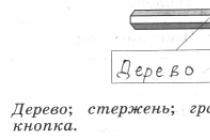The seller, transferring his ownership of a residential property through a purchase and sale agreement, is interested in receiving funds from the buyer. In this regard, it is necessary to understand what ways to safely receive large sums of money exist and how best to receive money without the risk of being deceived.
How to safely receive money when selling an apartment
The sale of a property occurs in several stages. Even at the initial stage of the transaction, the parties try to protect themselves from various adverse legal consequences.
The agreement should indicate not only the amount received from the buyer, but also the form in which the payment will take place, as well as the detailed procedure.
The parties must agree on the conditions for making an advance payment, as well as the procedure for disbursing funds, if there is a provision for installments.
Please note that in the latter case, the parties must draw up an additional document indicating the amount of payments and the frequency of their payment.
Ways to receive funds
So, back to the question, How is money transferred when selling an apartment?
Currently, the transfer of funds under a purchase and sale agreement is carried out in several ways:
- The most common way to receive funds as a result of a transaction in relation to the rights to an apartment is safe deposit box. The meaning of this method is that funds will be transferred only if all the terms of the concluded agreement are fully observed and fulfilled. Please note that, as a general rule, all costs for drawing up an agreement with a banking organization are borne by the buyer.
- Bank letter of credit. When dealing with real estate, this method of receiving funds is considered the safest; there are no significant risks. A letter of credit is an agreement through which the buyer undertakes to deposit funds into a bank account, which is opened specifically for this purpose if the seller prepares all the required documents. Remember that the buyer cannot unilaterally refuse to transfer funds. The algorithm for this method is as follows:
- The bank opens a special account to which funds are transferred.
- After the funds have arrived. The credit institution notifies the seller of the credit.
- The seller prepares all required documents and provides them.
- Next, the bank provides access to funds. When documents are not submitted within the specified period, the money is returned to the buyer.
- Today, another way to receive funds when selling a residential property is contacting special centers. As a rule, such organizations are contacted when transferring funds in cash. In the presence of employees, an agreement on the transfer of money is drawn up. Such a document must have three copies, and signed by each party. Particular attention should be paid to the transferred banknotes, since the money should be checked for authenticity.
- Escrow services. Such services are called divisions of real estate agencies that provide documentary support for agreements, and also take on responsibilities for monitoring settlements between the parties. Such services control the timing of money transfers and also check the authenticity of banknotes. However, it is worth noting the fact that if they contact such a service, the parties themselves will not be able to verify the reliability of the organization.
Receiving money through a notary
When they give money when buying an apartment, the parties can contact a notary.
Transferring money through a notary has been carried out officially since 2015.
The possibility of using this method is enshrined in the Civil Code of the Russian Federation (Article 327).
In order to use this form of receiving funds, the consent of the notary himself is required. If available, before registering the agreement, he receives the funds transferred by the buyer to his bank account. Then, after the transaction is completed, the notary transfers funds from his account to the seller.
Please note that the use of this method implies the conclusion of an additional agreement on monetary settlements, which confirms the legal fact that the notary controls not only the documentation of the agreement, but also acts as a guarantor of the transfer of funds.
The cost of such a service is approximately 1,500 rubles.
Remember, the agreement must establish in more detail the basis for the buyer to be able to withdraw his funds from the notary's account.
The bank transfers the mortgage money to the seller
You need to know how to safely receive money in cases where the apartment is under a mortgage loan.
Funds are transferred as follows:
- The seller and the buyer draw up a preliminary agreement for the purchase and sale of the object;
- The buyer submits his documents to the banking organization, which reviews them and, if approved, enters into an agreement with the buyer;
- Next, the banking organization transfers funds to the seller in the amount indicated in the contract;
- The buyer receives the rights to the apartment.
When the bank transfers the mortgage money to the seller, it assumes the responsibility to control the timing of the transfer of funds and compliance with other provisions relating to the procedure.
How to check money when selling an apartment
Since the seller of the apartment is interested in receiving genuine funds, he can check them in the following ways:
- The parties may contact a notary. Remember that such an appeal can be made to any notary office.
- The seller can independently purchase a mechanism with which to verify the authenticity of money.
- The parties can contact any banking organization that will verify the authenticity of the funds after the services have been paid for.
To check the authenticity of banknotes, see the video:
How to register to receive money
The seller must know not only how to correctly receive money, but also how to correctly document the fact of receiving funds from the buyer.
If you are selling an apartment with a mortgage
In the case of a paid transfer of ownership of an apartment that is under mortgage, the parties can use two options for transferring funds:
- The credit institution transfers the funds to the buyer, who then undertakes to transfer the funds to the seller;
- The banking organization, after concluding an agreement with the buyer on mortgage lending, independently transfers funds to the open account of the seller.
As a rule, the second option is used. In this case, the seller is completely safe from fraudsters.
Receipt for receipt of funds under the agreement, act
A receipt is one of the most common documents that are drawn up when receiving funds.
A receipt for receipt of funds is drawn up by the seller in writing. The document must meet certain requirements that apply to it.
First of all, this concerns the content.
In the document you must write:
- Personal data of the person who received the money, as well as the data of the person from whom the money was received. Information must be provided in accordance with documents confirming the identity of both parties.
- The following is the amount of funds transferred. Indicated in both words and numbers. The important point is that the seller must indicate why the buyer received funds.
To date, no receipt form has been established at the legislative level. In this regard, the parties are free to draw up a document themselves or download a sample from the Internet.
You can see a sample receipt below.

A document that is similar to a receipt is an act of receipt of funds. It must indicate:
- Data on the purchase and sale agreement on the basis of which funds are transferred;
- Information about the parties;
- Information that funds were transferred, their amount;
- Information that the seller has no claims against the buyer.
Conclusion
Thus, today there are many options for transferring funds in such a way that the seller is sure to receive them. The parties must decide for themselves which option to choose.
Contrary to popular belief, when making real estate transactions, not only the buyer, but also the seller is at risk.
Fraudsters have a whole arsenal of techniques with which they deceive both buyers and sellers of apartments. Therefore, it is very important to know exactly what tricks and schemes they use.
Suspicious buyers
Home owners periodically encounter such “pseudo-buyers” who only look at apartments, but in fact have no intention of purchasing them. Some of these characters are completely harmless. But among them there are also those who can work in collusion with criminals. For example, they can be guides for burglars.
Therefore, if you want to protect yourself from such developments, you should ask all potential buyers to sign an apartment viewing certificate and provide their data. If you contact a realtor, he will draw up such a deed for you and offer it to the buyer for signature. Better yet, try, if possible, to remove some of the furnishings and expensive equipment from the apartment before the showing.
Advance and deposit
Fraudulent buyers often take advantage of the fact that sellers do not know all the intricacies of a real estate purchase and sale transaction particularly well. In particular, many do not see the difference between such concepts as advance payment and deposit. But there is a fundamental difference between them, and they should not be confused with each other. A deposit is an amount that serves as security for the execution of a contract. If the person who gave the deposit refuses the transaction, the money will not be returned to him. And if the one who took it refuses, then he must pay double the deposit. And an advance is just an advance payment. If the contract is not fulfilled, it is always returned. The transferred funds are recognized as an advance unless a written agreement on the deposit has been concluded.
It is precisely the ignorance of ordinary people about these subtleties that scammers rely on, asking sellers to give a deposit for the apartment. Then they do everything in order to force the seller to break his obligations and demand payment of the deposit in double amount. In some cases, there may be two straw buyers, and if one of them gives a larger deposit, the second will certainly demand the return of an amount that will be twice as much as what he paid. Such “pseudo-buyers” work together, and then split the difference, leaving the hapless seller in the cold.
Thus, it is better to take an advance from buyers and, if necessary, set penalties for failure to fulfill obligations. This is better than paying your hard-earned money to scammers.
Fraud in the transfer of money
The transfer of money causes great concern for all sellers, because it is at this moment that fraud is most often possible. The most dangerous option is transferring money from hand to hand, and the seller should under no circumstances agree to this, because the bills may turn out to be counterfeit. Or the buyer may slip you a “doll.”
Cashless payment is also far from a safe option, since there is a risk that after registering the purchase and sale agreement, the buyer simply will not transfer the money to you. In this case, your apartment will already become his property.
All payments should be made through the bank. The buyer rents a safe deposit box for some time (about a month), where he deposits money in the presence of the seller. If the transaction is successful, the seller will be able to receive them upon presentation of a registered sales contract within approximately 20 days. And if it fails, at the end of the cell rental period the buyer will be able to take them back.
If you are afraid that the buyer may slip you counterfeit bills or put a “doll” in a safe deposit box, it is worth ordering a money authentication check and a money counting service from the bank. Then you will be absolutely sure that the buyer is not deceiving you.
Safe deposit box scams
But even if the transfer of money for an apartment is carried out with the participation of the bank, scammers still have several ways to deceive you. An unscrupulous buyer may deliberately cause the registration of an agreement with Rosreestr to be delayed. For example, due to his fault, certain errors may be found in the contract.
By the time the contract is finally registered and the apartment becomes the property of the buyer, the seller’s access period to the unit will have already passed. At this moment, the buyer will come to the bank and simply take his money, and you will be left without money and without real estate.
To prevent this from happening, carefully monitor the terms of your safe deposit box rental. Do not enter into agreements under which you can only gain access to the locker together with the buyer, because he can always say he is sick or come up with another excuse so that you do not receive the money.
Instead of the usual rental of a safe deposit box, you can use a bank letter of credit for payments. This is more reliable, because a letter of credit requires non-cash payment, and the buyer will not be able to get the money back if the transaction actually takes place.
Entrust the verification of the purchase and sale agreement only to experienced lawyers and realtors and read it yourself very carefully. Don't trust a buyer who offers to take everything on himself. Likewise, do not trust lawyers, realtors and notaries recommended to you by the buyer, because they may work in collusion with him.
The notary carries out settlements between the buyer and the seller. The easiest way to transfer money for an apartment from hand to hand, but this same option is considered the most dangerous.
To ensure the security of a transaction, you need to either hire security or rent a meeting room at a bank for the transaction and immediately after receiving the money place it on a deposit or current account. But this does not eliminate, for example, such a problem as transferring part of the amount to the buyer with an oral promise to pay the missing amount a little later. If this happens after the agreement has been signed and registered, then problems cannot be avoided.
Advantages: No formalities or additional expenses.
Flaws: Greater risks associated with cash transfers.
You can find out how to buy and sell an apartment for cash.
Bank safe deposit box
Another way to secure a transaction is to place money in a safe deposit box. This is very convenient and for renting a safe for only 3-14 days, while the registration of the contract lasts, you will have to pay no more than 1 thousand rubles. Cash will be stored in a safe and only the buyer, seller and the list of persons specified in the contract will have access to it.
The essence of the scheme is simple:
- The buyer rents a locker and places the entire amount under the contract into it on the day of the transaction. This is usually done in the presence of the seller.
- After this, the seller of the apartment is allowed to the safe only after he provides the original purchase and sale agreement with a state registration mark.
The bank carefully checks this information. Even if one of the participants loses the key to the safe, this will not cause problems, since the bank will not allow anyone into its depository without checking the transaction documents. If the deal falls through, the buyer will be able to withdraw the funds within a week.
With the help of safes, the lion's share of payments in the secondary housing market is made.
With new buildings, everything is not so simple, where payments take place in the office of the developer or his intermediaries or by bank transfer. For payment, not one, but many cells can be rented if the transaction is complex and involves the sale and purchase of other real estate properties.
Advantages: A cheap and safe way to store large amounts.
Flaw: It is necessary to draw up a lease agreement for the safe deposit box, and in the event of bank bankruptcy, these funds are not covered by deposit insurance.
The process of transferring funds through a safe deposit box is discussed in detail in.
Letter of Credit
Another popular one a safe payment option for real estate transactions - a letter of credit.

Account opening costs are usually the responsibility of the buyer. The size of the commission can range from 0.5 to 2-5% of the amount, which may not suit all participants in the transaction.
Advantages: Transaction security.
Flaws: High bank commission for opening an account and cashing out funds.
Cash at the notary
If you don’t want to deal with banks, then always you can make payments directly at the notary’s office, where the purchase and sale agreement is signed. Using a machine to verify the authenticity of banknotes, you can count and verify the entire amount.
 But no one guarantees safety after you leave the office with money. In addition, the state transfer takes at least 1-3 days (and on average two weeks) and before it happens, there is no need to rush to transfer funds.
But no one guarantees safety after you leave the office with money. In addition, the state transfer takes at least 1-3 days (and on average two weeks) and before it happens, there is no need to rush to transfer funds.
Anytime the seller can cancel the state registration procedure and keep the apartment for himself. It will be very difficult to get the money back from him, given the workload of our courts and the high level of corruption.
You can enter into an agreement stipulating that payment will occur immediately after registration, but these are also additional risks. That is why most participants in real estate transactions choose settlement schemes with the participation of banks or intermediaries that they trust.
Advantages: Get cash quickly.
Flaws: High risk of money being stolen on the street or late payment.
Deposit with a notary
You can negotiate differently with a notary.

Before agreeing to such a payment scheme, you need to carefully check the reputation of the notary and whether he has licenses to work. In fact in this case the notary acts as an ordinary intermediary with all the ensuing risks. He can disappear with the money and deceive not only you, but also many other clients.
Even if he turns out to be conscientious, this calculation scheme cannot be called flawless. To transfer money or open an account you will need to pay a certain commission (up to 3%). In addition, not all notaries provide their deposits for transactions.
Advantages: Transaction security.
Flaws: High commission for opening an account and transferring from account to account or cashing out plus payment for notary services (minimum 1.5 thousand rubles).
Cashless payment
Bank transfer is a simple payment method, but it involves costs for bank services. The buyer places money for the apartment into his current account and immediately after state registration transfers it to the seller’s account.
 At any time, he can confirm that he transferred the money simply by issuing a certificate from the bank. The seller will not be able to manipulate the buyer by proving that he did not receive the money. If you stipulate this scheme in the purchase and sale agreement, then no problem should arise.
At any time, he can confirm that he transferred the money simply by issuing a certificate from the bank. The seller will not be able to manipulate the buyer by proving that he did not receive the money. If you stipulate this scheme in the purchase and sale agreement, then no problem should arise.
If the money is not transferred within the due date, the seller has the right to demand cancellation of state registration and the purchase and sale transaction.
Advantages: All transactions with money are documented.
Flaws: Commission for opening an account, transfer and cashing out.
Payment through an agency
Transfer of funds can also take place in the office of a real estate agency(read about support for the purchase and sale of an apartment). This is quite convenient, because here you can immediately pay with the realtor, count the money in a separate room and use the services of an invited notary.

Advantages: Minimum expenses.
Flaws: State registration can be appealed by the seller and a lengthy trial will begin. The money will already be transferred.
The moment it happens
Payment of money occurs after the parties sign the bill of sale and state registration of rights. Before this, an agreement can be concluded on the transfer of a deposit (for example, in the amount of 10% of the cost of the apartment). The deposit can be transferred from hand to hand or through a safe deposit box (you can read about deposits, pledges and advances).
But the entire amount is transferred only when all documents have already been completed. For example, with schemes with a letter of credit or a safe deposit box, you will not be given access to money unless they are sure that the transaction has taken place. You can deposit money into a cell or deposit it into your account before the transaction, and this can be done in the presence of the seller.
Money transfer instructions:

If you follow all the rules, the transaction will be absolutely safe.
The main thing is to write down the calculation algorithm point by point in the purchase and sale agreement itself and do not forget to take a receipt from the seller or a certificate from the bank stating that the funds were withdrawn from the account.
In what currency should I pay?
The cost of an apartment can be assessed in terms of dollars or euros, but settlements are most often carried out in national currency. This is more convenient because you do not need to constantly change the price of an apartment due to exchange rate changes. This is also due to the fact that mortgage agreements are also mainly drawn up in rubles in order to protect themselves from currency fluctuations.
Developers also accept payment for DDU agreements in rubles, not foreign currency. If you decide to sell or buy an apartment in dollars or euros, then carefully check the banknotes using technical means.
Which methods are most often used in the secondary market, and which ones in the primary market?
 The most popular payment method is through a safe deposit box.
The most popular payment method is through a safe deposit box.
It can be carried out in two stages (with depositing half or another part of the amount, and then the remaining funds after registration). This is a safe and not too expensive method, which is perfect if you are drawing up a bill of sale in simple written form without notarization. For safer payments It is recommended to take a receipt from the seller after he takes the money from the cell.
Notary deposits and non-cash payments from account to account are also popular. Payment for a share participation agreement in construction or other investment agreement is made to the developer’s account. If payments are made using installments, then payment can be made in stages, according to the terms of the agreement. Sometimes payment is made in cash at the cash register, but with the obligatory issuance of a receipt to the buyer.
In what cases is a receipt required?
If settlements do not take place through a bank, where you can always issue an extract or certificate, then you must, at a minimum, write about the receipt of money. This document is drawn up in simple written form in the presence of the buyer. The receipt must indicate the number of the main contract, amount, dates and personal data.
Everything is certified with a personal signature. When paying in installments, you will need to draw up several such documents. There is no need to have the receipt certified by a notary, however, the document must be readable and in proper format (a sample can be easily found on the Internet).
5 main mistakes
There are many cases of fraud in the real estate market. The main mistakes of buyers and sellers can be summarized as follows:

To avoid becoming a victim of scammers, you should not give money when you do not have a receipt or other documentary evidence before the transaction is officially completed. In complex transactions, when other real estate is being bought or sold at the same time, it is worth taking maximum care to protect your interests if one of the transactions does not go through. You should be careful when communicating with those who are selling an apartment at.
It is necessary to check not only whether this document has expired, but also whether the person who instructed someone else to represent their interests is alive. When purchasing a home on the primary market, it is recommended to thoroughly study the developer’s experience and reviews about him. Delaying construction should be accompanied by the payment of fines and penalties, and the buyer himself should have the opportunity in this case to terminate the contract and take his money.
Watch a video about the most common mistakes.
What's the best way to protect yourself?
According to Art. 223 of the Civil Code of the Russian Federation, the right of ownership under a real estate contract arises from the moment of its state registration. Before this, the buyer has no right to dispose of the property, since the ownership of it remains with the seller.
To reduce risks:
- It is better to use schemes where money is issued after checking the bill of sale and state registration mark. Then an encumbrance is placed on the property. To remove it, you will need to show a receipt or other document confirming payment.
- You should not rush to transfer a large deposit to the seller, especially if you have any doubts about the person himself or your readiness to buy an apartment. Formally, in case of refusal of a transaction without reason, the seller is obliged not only to return the advance, but to do so in double amount.
But in practice, such disputes sometimes end in court, and in the worst case, in the police. To secure a deal, 10-20% of the cost of housing is quite enough. The remaining amount may be at the seller’s disposal in 1-2 weeks.
If you change your mind about buying an apartment, you will simply lose all the funds you paid as a deposit.
- If you are afraid that the seller will not check people out of the apartment, then you can consider a two-step settlement process. For example, rent not one, but two cells. In the second, place the remaining amount for the apartment, which will become available only after presenting a certificate of registered persons or an extract from the House Register.
Article 223 of the Civil Code of the Russian Federation. The moment at which the acquirer’s ownership rights arise under the contract
- The ownership right of the acquirer of a thing under a contract arises from the moment of its transfer, unless otherwise provided by law or contract.
- In cases where the alienation of property is subject to state registration, the acquirer's ownership rights arise from the moment of such registration, unless otherwise provided by law.
Real estate is recognized as belonging to a bona fide purchaser (clause 1 of Article 302) on the right of ownership from the moment of such registration, with the exception of the cases provided for in Article 302 of this Code when the owner has the right to claim such property from a bona fide purchaser.
Conclusion
Calculations are the most important thing in a real estate transaction. To reduce risks, it is better to use only proven methods of transferring money(, letters of credit, etc.). You should not pay with the seller in the apartment or restaurant itself, even if it seems to you that you can completely trust him. You should also be wary of various intermediaries who offer their services as a transit account for storing money while the apartment is registered in the registry.
Real estate transactions always involve dealing with multi-million dollar amounts. And in the real estate market there are a lot of scammers, swindlers and other dishonest people.
Dear readers! The article talks about typical ways to resolve legal issues, but each case is individual. If you want to know how solve exactly your problem- contact a consultant:
APPLICATIONS AND CALLS ARE ACCEPTED 24/7 and 7 days a week.
It's fast and FOR FREE!
The issue of security of payments cannot be treated irresponsibly - after all, this will determine whether the transaction will be completed successfully or whether another victim will fall into the collection of victims of the next deceivers?
At what point does it happen
One of the main issues in real estate transactions is the timing of the transfer of funds from one party to the other. Money can be transferred both before the transaction is formalized in Rosreestr and after, but there are some nuances here.
So, for the seller, the most acceptable option is when the buyer pays the sale price even before the apartment changes its owner.
In addition, the seller thereby insures himself against the risks of being deceived. After all, after a change of owner, the “reverse” procedure can only be carried out through the court - if the transaction is declared invalid.
If the buyer appears to be in good faith, the moment of transfer of funds does not play, in fact, any role. Of course, there is a possibility that after receiving funds the seller will refuse to continue the transaction. Fortunately, such cases are few.
Thus, two small conclusions can be drawn:
- it is desirable that the transfer of money be carried out after the signing of the contract, but before the state registration of ownership;
- if the buyer avoids payment in every possible way before the state registration of ownership, there is a risk that this is a fraudster who is simply not going to give the money.
Rules
The rules for transferring funds for an apartment depend on the market in which the residential property is purchased, as well as on some other conditions:
- If the transaction takes place on the primary real estate market, then the parties are the buyer and the developer (individual and legal entity, respectively). Typically, payments in this case are made cashless, but cash can also be deposited through the developer's cash desk. The method of transferring funds is chosen by the developer, and the buyer can influence this only in rare cases.
- For DPAs (share participation agreements), since 2019, the legislation has provided for an alternative payment scheme - through escrow accounts. In the presented case, money is also transferred by bank transfer, but not directly to the developer, but to a special bank account.
- If the transaction is carried out on the secondary market, it is generally accepted to pay in cash, but this is the least secure method.
To successfully complete a transaction without the risk of being deceived, it is better to use safe payment methods, for example:
- through a safe deposit box in a bank;
- letter of credit;
- through a notary deposit.
How does the transfer of money occur when selling an apartment?
Let's consider what methods exist and which of them are the most acceptable and safe for both parties to the transaction.
Through a safe deposit box
The most popular method of transferring funds for a purchase is cash payment, but without directly transferring money “into the hands” of the seller, but using a special safe deposit box in a bank.
The procedure for renting and using a locker is maximally adapted for conducting various transactions with real estate, including multi-stage ones.
A safe deposit box is a small safe, comparable to a desk drawer, located in a special bank vault - a depository.
The credit structure provides services for renting a cell for an unlimited period. At the same time, the credit institution does not control what exactly the tenant puts in the locker.
The banking institution only provides security for the safe deposit box and controls access to it. Thus, complete confidentiality when transferring funds is guaranteed.
The tenant of a safe deposit box is usually the buyer of real estate. He also deposits funds in the amount established by the seller in the safe.
The seller can withdraw funds only if the conditions specified in the add. agreement to the safe deposit box rental agreement. The agreement is concluded between 3 parties - the buyer, the seller and the bank.
In an additional agreement, the parties can prescribe specific conditions for access to the box for each person.
For example, the seller must be given specific deadlines and documents that must be presented to the bank to withdraw money from the safe. If the apartment does not change its owner within the established time frame, the buyer will be able to withdraw his money.
As a rule, confirmation for the bank of the transfer of ownership is the seller’s passport and the purchase and sale agreement with a mark from Rosreestr stating that the transaction has passed state registration.
The parties can also determine additional conditions for the seller’s access to the locker. For example, indicate that it is mandatory to provide an extract from the house register confirming the absence of registered persons in.
Through a notary
The law, in particular, Art. 327 of the Civil Code of the Russian Federation, provides for the possibility of debtors under a monetary obligation to deposit funds on the deposit of a notary.
Based on part 1.1. of this article, an agreement between the creditor and the debtor may provide for the condition that the debtor (who is also the buyer of the apartment) is obliged to fulfill the obligation to pay the sale price only by depositing funds into a notarial deposit.
Thus, in order to use this payment method, the parties to the transaction need to indicate in the DCP that settlements will be made by means of a notarial deposit.
How do settlements occur through a notary? The buyer of the apartment simply visits the notary at the location of the transaction and gives the money either in cash or through bank transfer.
The notary accepts the money and stores it until the creditor (seller of the apartment) fulfills the conditions for state registration of the transaction.
The notary does not keep money in his office. Regardless of how they are transferred by the buyer, they are in the notary's bank account.
Please note that the Civil Code of the Russian Federation allows the buyer to withdraw funds from the notarial deposit at any time.
Thus, the parties to the contract must specify a condition in the agreement regarding specific cases when the buyer can withdraw money from the notary deposit in order to avoid misunderstandings.
On the day of the transaction
Typically, same-day settlement is a cash payment method. However, it is recommended to use this “old-fashioned” method only in extreme cases and with 100% confidence in the integrity of the counterparty.
Cash payments are quite common if the transaction is carried out, for example, between close relatives or friends.
Risks associated with cash payments:
- the need to transport large amounts of money from place to place;
- deception and fraud when counting banknotes;
- transfer of counterfeit banknotes.
From account to account
The parties to the process can use another, but less popular method (compared to a safe deposit box) - a letter of credit.
A letter of credit is a service provided by a credit institution for the transfer of funds from the account of the buyer of an apartment to the account of the seller upon presentation by the seller of documents certifying the transaction.
A safe deposit box and a letter of credit are almost identical methods of transferring money, with one exception. A letter of credit is a non-cash payment, and a safe deposit box is cash.
For mortgage
In cases where a potential buyer takes out a mortgage to purchase residential premises, the correctness and legality of the calculations is controlled by the creditor bank, because it is a priori interested in the safety of the borrowed funds.
Depending on the specific bank, payments can be made either through a safe deposit box or through a letter of credit.
If payments are made through a safe deposit box, the creditor bank may request an additional package of documentation to provide the seller with access to the safe.
Such documents can serve as:
- an extract from the Unified State Register confirming the transfer of ownership;
- receipt for receipt of money;
- certificate from the Registration Chamber on acceptance of a package of documents for state registration, etc.
Basic mistakes
The main mistakes that parties make when carrying out transactions involving the transfer of funds when buying and selling real estate:
- Choosing the wrong method to transfer money.
You have decided to sell your apartment, but you understand that you won’t take the money from the deal home in a bag. Firstly, it is dangerous, and secondly, there is a risk of being deceived. Therefore, the question of how to safely receive money when selling an apartment is so relevant. Below we will consider options for how to get your money from the sale of property through banking products.
Each of the parties involved in the purchase and sale transaction tries to protect itself, so the process of receiving money is negotiated in advance. The parties decide:
- what form of payment will be used;
- possibility of advance payment;
- cost in a certain currency or its ruble equivalent.
Having settled these issues, you need to agree on how best to get the money. This can be done in several ways; we will consider each of them in more detail below.
How to correctly receive money through a safe deposit box
This is one of the most used mutual settlement options, which is used when selling apartments. The meaning of a safe deposit box is that money from the buyer is transferred to the bank for safekeeping, and after compliance with all previously agreed upon agreements and the transfer of ownership from the seller to the buyer, they can:
- transferred to the account of the seller of the apartment;
- stay in a safe deposit box, the key to which is given to the seller.
A safe deposit box is one of the most used options for mutual settlements when selling apartments
According to the rules, the costs associated with processing banking transactions must be borne by the buyer.
The method of payment through a safe deposit box minimizes the risks of being deceived, since the bank acts as a third disinterested party working for a fee. To fulfill the conditions, all participants must sign a tripartite agreement.
How to safely receive money when selling an apartment by contacting a third party
The third party in a purchase and sale transaction is a legal institution that has the right to provide services for maintaining documentary support for transactions of various types. The “bright” representatives of this category include escrow services and notaries. Contacting them involves receiving money in cash. How to properly receive funds through an escrow service and a notary?
We sell an apartment through an escrow service
An escrow service is a division that is part of a real estate agency. This division organizes documentary support, takes care of mutual settlements, checks banknotes for authenticity and records the fact of transfer of money.
We sell an apartment through a notary
A notary may well act as a guarantor of honesty in settlements between the buyer and the seller. After the parties sign the agreement, the money is transferred to the seller in the presence of a notary, who recalculates it. It is difficult to verify the authenticity of banknotes in such transactions, but the fact of deception in the form of slipped “dolls” will be excluded.
This method of payment, such as the transfer (transfer) of cash in the presence of a notary, is enshrined in Article 327 of the Civil Code of the Russian Federation and has been officially in effect since 2015.
There is a practice of mutual settlements by transferring money to the notary's bank account. After signing the purchase and sale agreement, the notary redirects the funds to the seller’s bank account. This service is negotiated in advance and costs about 1,500 rubles.
How to safely complete a transaction and receive money if an apartment is purchased with a mortgage loan

You can sell your apartment with a mortgage loan. This is a safe way to get your money from the bank
There are situations when an apartment is sold with a mortgage loan. What is the right thing to do in such a situation so as not to be deceived?
- Initially, a preliminary purchase and sale agreement is drawn up between the parties.
- The buyer of the apartment, for his part, provides the bank with a certain package of documents, after consideration of which, a decision is made to sign the agreement.
- The bank transfers funds, the amount of which is specified in the agreement, to the seller’s current account. And the buyer gets legal rights to the property, which will become his entirely after the mortgage loan is paid off.
Do I need a receipt for receiving money for selling an apartment?
The seller, which you are, does not need a receipt as such. A receipt for receiving money for the sale of an apartment is of great value to the buyer, as it proves the fact of transfer of funds to the seller. In court, it can act as irrefutable evidence.
The document is drawn up in one copy for the buyer. A receipt is filled out when:
- transfer of the entire amount of the cost of the apartment;
- making an advance payment (deposit).
It must be written by hand, and in order for the receipt to have legal force, it must be notarized.
Advance receipts must be kept by the buyer of the apartment until the day of registration of the real estate purchase and sale agreement.
What should be included in a receipt for receiving money?
Although the document is drawn up by hand, there are some requirements for its content. So, the receipt for receiving money for the sale of an apartment must reflect the following points:
- Heading (advance receipt or receipt for the full amount).
- Information about the parties (buyer, seller).
- Reason for transferring funds (purchase of real estate), you can indicate the address of the apartment for sale.
- The amount of money received/transferred. Written in numbers and in words. The currency is also indicated, and the exchange rate is prescribed for foreign currency.
- If this is the final payment, then you should enter the details of the purchase and sale agreement, which has passed state registration.
- Seller's signature and date of document preparation.
How to issue a receipt for receiving money

Sample of writing a receipt
The receipt is written manually by the recipient of the money. In the presence of a notary, funds are transferred from the buyer to the seller. Next, the notary certifies the completed transaction, about which a note is made on the receipt. For the document to have full legal force, all of the above points must be disclosed in the text of the receipt.
What if the deal doesn't go through?
If for any reason the transaction falls through or is cancelled, the funds are returned to the buyer:
- when paying in cash, previously transferred banknotes are immediately returned in the presence of a third party;
- by transfer to a bank account.
If the transaction does not take place, and mutual settlements are carried out through a safe deposit box, then the seller, based on the situation: extends their storage (the purchase and sale transaction has been postponed for several days) or transfers it to his own account.
Have you decided to sell your property and are wondering how to safely get your money? Be sure to use the services of a third party (bank, notary, escrow service agent), so you will minimize the risk of being deceived. But remember that each of the above methods has its own disadvantages and design nuances. Be smart and sell your property for a profit.
BEST LOANS OF THIS MONTH
For the survey to work, you must enable JavaScript in your browser settings.














